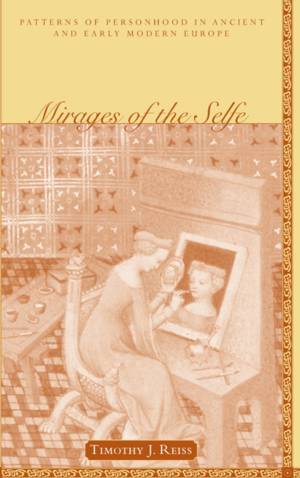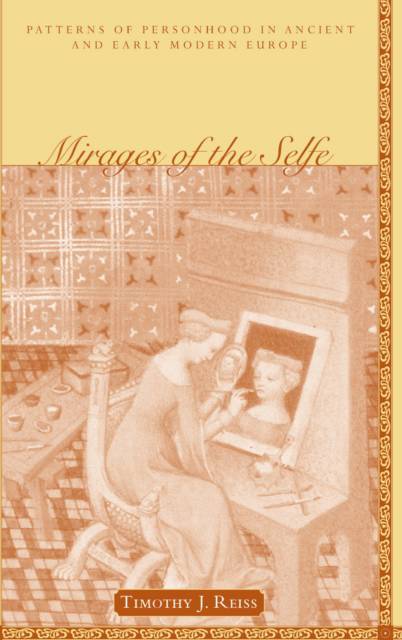
- Retrait gratuit dans votre magasin Club
- 7.000.000 titres dans notre catalogue
- Payer en toute sécurité
- Toujours un magasin près de chez vous
- Retrait gratuit dans votre magasin Club
- 7.000.0000 titres dans notre catalogue
- Payer en toute sécurité
- Toujours un magasin près de chez vous
Mirages of the Selfe Mirages of the Selfe Mirages of the Selfe
Patterns of Personhood in Ancient and Early Modern Europe Patterns of Personhood in an
Timothy J ReissDescription
Through extensive readings in philosophical, legal, medical, and imaginative writing, this book explores notions and experiences of being a person from European antiquity to Descartes. It offers quite new interpretations of what it was to be a person--to experience who-ness--in other times and places, involving new understandings of knowing, willing, and acting, as well as of political and material life, the play of public and private, passions and emotions.
The trajectory the author reveals reaches from the ancient sense of personhood as set in a totality of surroundings inseparable from the person, to an increasing sense of impermeability to the world, in which anger has replaced love in affirming a sense of self. The author develops his analysis through an impressive range of authors, languages, and texts: from Cicero, Seneca, and Galen; through Avicenna, Hildegard of Bingen, and Heloise and Abelard; to Petrarch, Montaigne, and Descartes.
Spécifications
Parties prenantes
- Auteur(s) :
- Editeur:
Contenu
- Nombre de pages :
- 640
- Langue:
- Anglais
Caractéristiques
- EAN:
- 9780804745659
- Date de parution :
- 17-12-02
- Format:
- Livre relié
- Format numérique:
- Genaaid
- Dimensions :
- 167 mm x 240 mm
- Poids :
- 975 g







